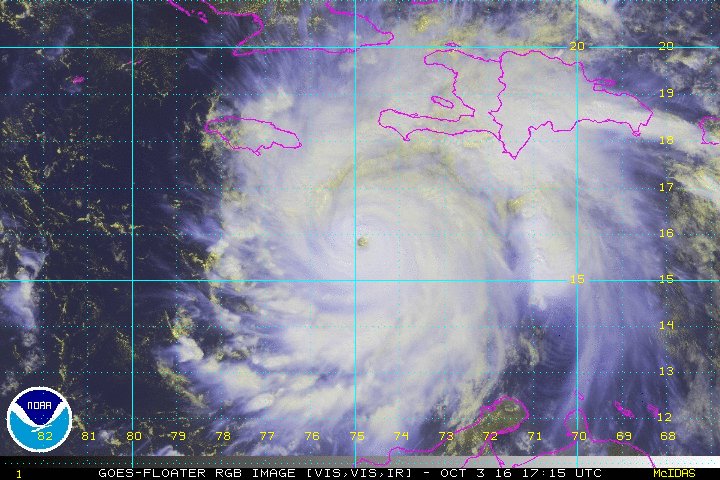As the Category 4 hurricane bears down on the Western Hemisphere's poorest nation, "catastrophic" floods, fierce winds and mudslides threaten to devastate a country still reeling from a 2010 earthquake.
The strongest hurricane in nearly a decade has blown ashore in Haiti, with torrential rains and sustained winds of 115 mph (185 kmph), although the strongest winds - 140 mph - are yet to come.
As much as 40 inches (100 cm) of rain could fall in isolated pockets, in a country where thousands are still living in tents, a remnant of a devastating earthquake that killed nearly 200,000 in 2010.
Hundreds of thousands more live in shanty towns - a byproduct of endemic poverty.
In the largest slum in the capital, Port-au-Prince, Mayor Frederic Hislain ordered 150,000 people to be bussed to safer places.
In the largest slum in the capital, Port-au-Prince, Mayor Frederic Hislain ordered 150,000 people to be bussed to safer places.
But many residents were reluctant to leave their homes due to fears their belongings would be stolen, officials said.
The hurricane is generating tidal surges of up to 11 feet (3.3 meters) on the island's most vulnerable western peninsula.
The capital, lying somewhat to the east of the storm's path, will likely be spared the full brunt of the storm, but will still be hard hit.
Authorities have also closed Haiti's main airport until the storm passes.
Ahead of Matthew's arrival, a fisherman drowned on Friday and another went missing Sunday, both off the southern coast.
Washington promises aid
Even before the hurricane made landfall the US said it would provide $400,000 in aid to Haiti and Jamaica to help them pay for relief supplies. Jamaica also prepared for the storm, and there are already reports of flooding there.
Cuba, which has a reputation for being well-prepared to ride out hurricanes, has already evacuated about 250,000 people from their homes in the eastern part of the island. Matthew is expected to reach Cuba by Tuesday night, before heading to the Bahamas on Wednesday.
It is currently project to hit Florida's Atlantic coast by Thursday night, though likely in a slightly weakened state. Still, it will remain a storm to be reckoned with, according to meteorologist Dennis Feltgen at the Miami-based hurricane center.
Florida and North Carolina have already declared a state of emergency.
"It has the potential of being catastrophic," Feltgen said.


0 comments:
Post a Comment